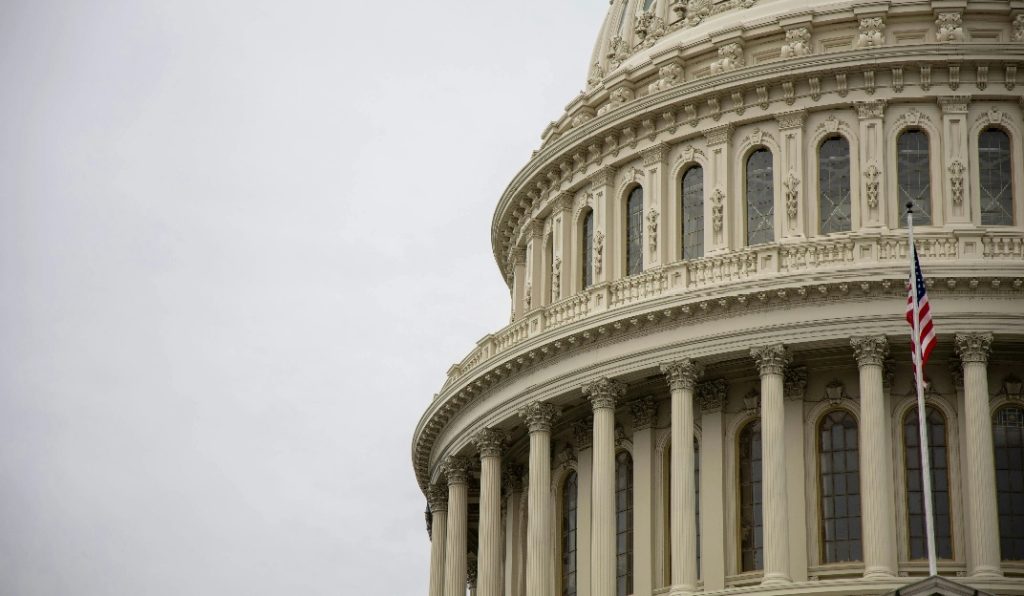A party for all people of goodwill
The Cristero Party is a political party of the Catholic laity in the United States that plans to expand to all the nations of the world working to elect Catholics to political office to wisely govern God’s good world for the glory and the name of Christ Jesus the King.
We believe that now is the time for:
- A political party that recognizes that all authority on earth has been given to Jesus Christ.
- A political party that believes the authority of God's Son should be expressed in our earthly government.
- A political party that grounds its platform in the rich tradition and thought of the Holy Catholic Church.




Politics has rightly been defined as “the highest form of charity.”
— POPE LEO XIV
We believe that now is the time to
Bring about the
Reign of Christ
Among the nations
JOIN THIS MOVEMENT TODAY
Are you tired of being forced to choose the lesser of two evils each election?
Are you ready to see true change?
GOD'S PLAN. GOD'S TIMETABLE.
Our nation, communities, institutions, and cultures become more of what we love when they are transformed by God.
1
Prayer
We are a universal people. The Church has made clear that, despite valid distinctions of authority, governance, and culture, no person is truly other. We are called to expand this order of love to the world, bringing the power of Jesus to every man, woman, and child. We can only do these through dedicated citizens and civil servants whose guiding light is the Lord’s Passion, Resurrection, and Ascension. The only way to ensure this is to dedicate ourselves to a life whose source is prayer. If we don’t pray for the changes we want to see happen in our towns, states, and country then we won’t be led down the right paths or possess the strength to continue on when the road becomes difficult and narrow.
2
Educate
The Cristero Party, inspired by the New Testament authors, seeks to educate Catholics in renewing their minds to embody ”the mind of Christ” (1 Corinthians 2:16), equipping them to serve with humility and justice, as Paul urges, “Think among yourselves the way that Christ Jesus also thought” (Philippians 2:5). Through partnerships with schools, targeted social media campaigns, and policy proposals grounded in Catholic Social Teaching — from Leo XIII’s Rerum Novarum on human dignity to Pope Francis’s Fratelli Tutti on fraternity — they aim to form Catholics in faith-driven wisdom for ethical governance. This educational mission fosters a just society reflecting Christ’s redemptive love and stewardship of God’s world.
3
Win Locally
Engage, equip, and deploy capable candidates to embody Christ’s presence in their local areas. We seek leaders who understand their communities and prioritize the common good of all, not just a select few. Our approach begins modestly—much like Jesus, who began with a small group and transformed the world. We aim to follow suit, with the Church standing as that radiant city, and America having the potential to reflect that light insofar as it embraces Christ and the Church.
Our party platform is founded on a simple idea:
Christ
is
King
“All authority in heaven and on earth has been given to me.”
– Jesus, Matthew 28:18
Christ is King of Marriage
Christ is King of Government
Christ is King of Education

Usher in the Reign of
Christ
the
King
Join our mailing list to stay up-to-date on how you can help
FREQUENTLY ASKED QUESTIONS
&
COMMON MISCONCEPTIONS
What about the separation of church and state?
The concept of separation of church and state, often linked to the First Amendment of the U.S. Constitution, ensures that the federal government cannot establish a national religion. However, it also allows individual states to determine their own religious character, as historically reflected in early state constitutions where some recognized Christianity. This flexibility underscores that the American system does not mandate a complete divorce of faith from governance but permits states to align with religious principles if they choose.
From the Church’s perspective, as articulated by Pope Pius XI in Quas Primas (1925), Christ is King over all nations, including their governments, and the Catholic Church expects states to acknowledge His sovereignty and the Church’s role in guiding moral order. Pope Leo XIII, in Immortale Dei (1885), taught that the state should recognize the true religion—Catholicism—as a foundation for justice and the common good. Furthermore, the social rights of Christ include a formal recognition of His name and His rights, a principle rooted in both the Old Testament, where God commands, “You shall have no other gods before me” (Exodus 20:3), and the New Testament, where Christ declares, “All authority in heaven and on earth has been given to me” (Matthew 28:18). Pope Pius XI, in Quas Primas, and Pope John XXIII, in Mater et Magistra (1961), reaffirmed that this recognition is essential for societal order, urging nations to honor Christ’s kingship publicly.
The Cristero party stands as the only political entity with this purpose in mind, dedicated to upholding Christ’s kingship and the formal recognition of His name and rights, aligning with the Church’s teachings and the biblical mandate to acknowledge His divine authority over all aspects of life, including governance.
What about the religious freedom of other religions?
The Catholic Church teaches that while tolerance of error may be necessary for the common good, this does not imply that the state should officially endorse or promote such error. As outlined in Dignitatis Humanae (1965) by the Second Vatican Council, individuals must be granted freedom of conscience to practice and believe according to their convictions, provided this does not undermine the common good or hinder the flourishing of the true religion — Catholicism — which is the highest good. Pope Leo XIII, in Libertas Praestantissimum (1888), emphasized that the state should tolerate differing beliefs to maintain peace and order, but it retains the duty to uphold and favor the truth of Christ’s Church.
Dignitatis Humanae supports this balance, affirming that the human person has a right to religious freedom rooted in the dignity of the human will, yet this freedom is not absolute — it must align with the objective moral order and the public good. The state is thus obliged to protect the free exercise of religion while ensuring that the true faith, as the foundation of societal well-being, is given its due recognition. Rulers should govern according to God’s example, which includes allowing freedom, recognizing that this freedom risks sin and disorder but reflects divine respect for human liberty. Everyday medical examples include: governments endorse subsidies for prenatal care to improve maternal and infant health, promoting it widely while tolerating those who reject it due to religious beliefs; they advocate for medicines to curb disease spread, yet allow exemptions for conscientious objectors; and they promote blood transfusions as life-saving, while permitting refusal based on faith (e.g., Jehovah’s Witnesses), balancing tolerance with the common good and prioritizing the highest good of public health.
Does this really have a chance of working?
Yes, the vision of recognizing Christ’s kingship in society, as advocated by the Church, has a realistic chance of success when grounded in faith, perseverance, and practical action. Pope Pius XI, in Quas Primas (1925), established the Feast of Christ the King to inspire nations to acknowledge His sovereignty, demonstrating the Church’s confidence in this mission. Pope John Paul II, in Centesimus Annus (1991), highlighted how Christian principles can transform cultures when lived authentically, even in secular contexts. History shows examples, like the resilience of Catholic communities during the Cristero War (1926-1929) in Mexico, where faith sustained resistance against anti-religious governance. While challenges exist, the Church teaches that divine grace, paired with human effort, can gradually align society with God’s will, as promised in Scripture (e.g., Matthew 16:18, “the gates of hell shall not prevail”). Success depends on consistent witness and engagement, starting with families and local communities.
Doesn't history prove the Church can't handle temporal power?
The Church, as articulated by Pope Boniface VIII in Unam Sanctam (1302), confidently proclaims the harmonious ordering of the temporal to the spiritual, a vision where earthly governance finds its ultimate purpose in alignment with divine truth. Drawing from Pope Leo XIII’s analogy of body and soul, the Church envisions the temporal sphere as the body—vital, active, and necessary—yet animated and perfected by the soul, which is the spiritual authority entrusted to the Church. Through the transformative power of her sacraments and the radiant clarity of her doctrine, the Church possesses an unparalleled capacity to elevate society, infusing it with justice, charity, and moral vitality. Her sacred rites and teachings are a divine catalyst, capable of renewing hearts and guiding nations toward their highest good.
The Cristero Party, in fidelity to this vision, acknowledges that history unfolds in the tension of two overlapping ages: the present, marked by human frailty, and the eternal, where grace abounds. In the era of Christendom, when the Church and temporal powers were closely united, Sata sometimes ensnared those baptized to govern in Jesus’ name, leading them into mortal sin and corruption. Yet, such failures arose not from an excess of Catholic fidelity but from its diminishment—when ecclesiastics or rulers strayed from the Church’s life-giving precepts. The Church’s confidence remains unshaken: when her teachings are lived fully, they foster a society radiant with virtue, where temporal power, rightly ordered to the spiritual, becomes a force for transcendent good.
Won't this just split the Catholic vote?
A unique Catholic political party could risk splitting the Catholic vote, potentially diluting its influence in elections. However, this concern assumes Catholics vote as a monolithic bloc, which isn’t always the case — Catholics often align with diverse parties based on economic, social, or regional priorities. A dedicated party could instead consolidate voters who prioritize Catholic social teaching, amplifying their voice on issues like life, family, and social justice. The success would depend on strategic coalition-building and avoiding niche isolation. Historical examples, like Christian Democratic parties in Europe, show mixed outcomes — sometimes gaining significant influence, other times marginalizing themselves. The key is broad appeal without compromising core principles.

